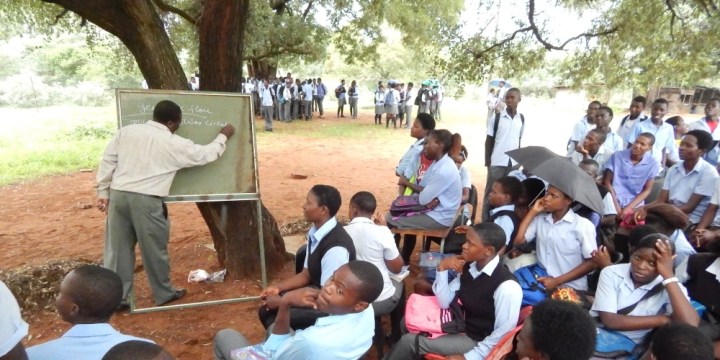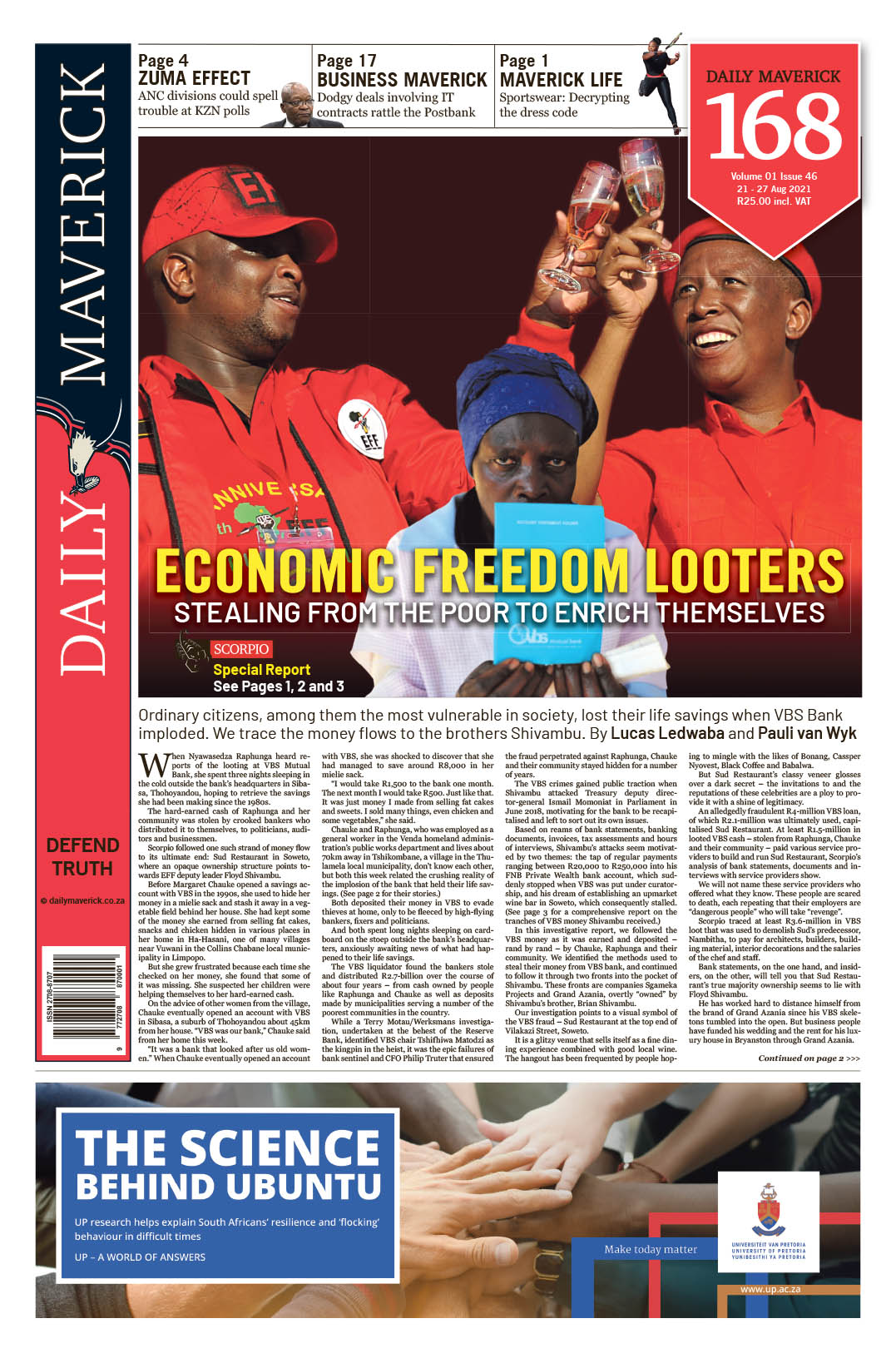DM168 REFLECTION
Basic Education Department needs a few lessons in 21st-century learning

Most teachers are under-resourced, underpaid, overburdened, inadequately skilled – and expected to shove a one-size-fits-all curriculum set for high academic achievers into the heads of learners squashed into classrooms of up to 100.
First published in the Daily Maverick 168 weekly newspaper.
Learning losses among schoolchildren across the globe are one of the most devastating impacts of the Covid-19 pandemic. Most governments suspended face-to-face teaching for varying periods, affecting 95% of pupils in the world. We can’t fathom the emotional, social and psychological price a generation of children have had to pay for this, the biggest disruption of education in the history of compulsory schooling.
Our Department of Basic Education has not yet quantified the impact of the pandemic and lockdowns on Grade 1 to 11 results, but we know from a Nids/Cram study that school closures and a reduction in face-to-face teaching days, hunger and the termination of school nutrition programmes has led to 750,000 South African children exiting the school system. Our pre-existing inequalities and digital divides put blended and online learning out of reach for the majority.
But SA’s basic education woes did not arrive on the spike proteins of the coronavirus. The 2015 global Trends in International Mathematics and Science Study (Timss) sees our Grade 4s and 8s on the bottom rung. A glance at the percentage of learners who achieved minimum competency in Grade 9 maths reveals the vast gaps between the majority of under-resourced, overcrowded non-fee-paying schools (19%), the better-resourced but fewer fee-paying schools (59.6%), and the handful of very well-resourced, very expensive higher-teacher-to-learner-ratio private independent schools (80.6%).
HSRC senior research manager Lolita Winnaar looked at the Timss results through the prism of teacher challenges and prevailing school contexts. She concluded that the majority of learners in no-fee schools (67%) attended schools where teachers faced challenges such as too many learners in the class, no time to give individual attention, too many administrative tasks and too many teaching hours.
The percentage of SA schools facing these challenges is double the international average. Most teachers are under-resourced, underpaid, overburdened, inadequately skilled – and expected to shove a one-size-fits-all curriculum set for high academic achievers into the heads of learners squashed into classrooms of up to 100. I saw classrooms with that insane number of learners several times in the many exposés of Eastern Cape education we ran during my six years as an editor in the Eastern Cape. This systemic disadvantage, which has its roots in the heinous apartheid Bantu education system, combined with Covid-induced loss of face-time with learners, no access to digital devices, network or data or training to teach virtually, is a recipe for disaster.
I know from my Grade 10 son’s experience that his marks, in particular for maths, plummeted. His maths teacher is a frontline heroine of public schooling who teaches extra classes twice a week, but we needed a one-on-one private maths tutor too. Most learners will not have access to this kind of support.
I understand the Department of Basic Education’s concern that SA schools have lost a lot of teaching time. But the proposal to scrap the five-day break in October to make up for that lost time is both short-sighted and tone-deaf to the emotional stress that learners and teachers are currently enduring. They are exhausted and buckling under the pressure to cram in the curriculum in record time.
The department should heed this crisis and take a long view of its approach to 21st-century education. We need to stop pretending that we are a First World country and face the facts. Unless we get our maths and science education right, only the children of the very few parents who can afford to pay high school fees and private tutors will qualify for most future work. Unless we get literacy right in all mother-tongue languages, then English, our children will never grasp the nuances, meaning and application of any content in the curriculum.
Instead of cramming learners in Grades 4 to 9 with assessments and projects, teachers should focus on teacher training, teaching time and school hours spent on the basics – maths, science, a mother-tongue language and English.
We must also adapt our education to the future of work. The OECD highlights the dire need, in an increasingly digitised world, for learners with the media literacy tools to tell fact from fiction. With artificial intelligence taking over many of today’s routine jobs, future jobs will require the soft skills of compassion, openness and flexibility. Jobs that need a human presence, such as caregivers, nurses, teachers, teaching assistants, first responders, will be in greater demand.
If the department removed the hours of admin for life orientation, technology and creative arts assessments, and made them enjoyable learning periods, teachers could focus on getting the basics of maths, science and language mastered and our children could start truly cultivating essential future mindsets and skills like creative thinking and the ability to cooperate and work in culturally diverse teams; they could develop empathy and care for each other and our environment. DM168
Heather Robertson is the editor of DM168.
This story first appeared in our weekly Daily Maverick 168 newspaper which is available for R25 at Pick n Pay, Exclusive Books and airport bookstores. For your nearest stockist, please click here.




















 Become an Insider
Become an Insider
Comments - Please login in order to comment.